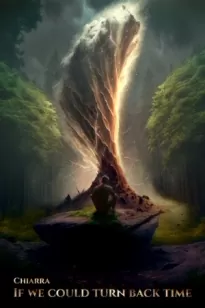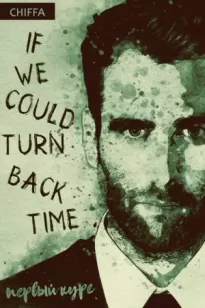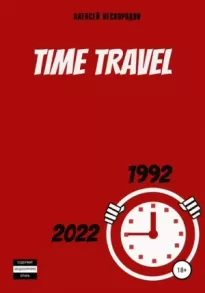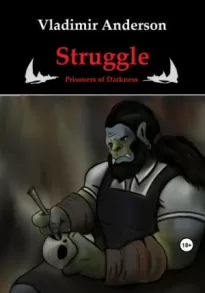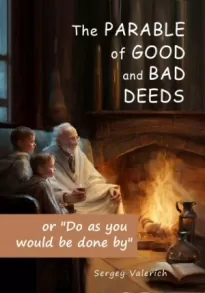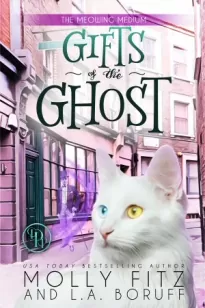TWICE IN TIME
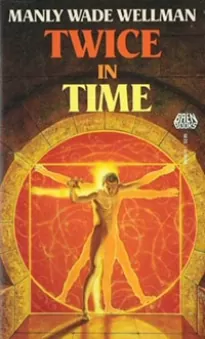
- Автор: Мэнли Веллман
- Жанр: Фантастика
Читать книгу "TWICE IN TIME"
CHAPTER XI Hopes of Escape
Bombs were a curiosity, but ours pleased Lorenzo greatly, when Guaracco and I returned to Florence with them. He gave us an audience, and later entertainment on the terrace of his villa in the pleasant green suburb of Fiesole.
"These things would do us credit in any battle," he was gracious enough to say. "Yet it is my hope to profit by some more peaceable marvel of yours. What, for example, of that flying machine?"
"I make progress."
I attempted to put him off, and Guaracco also labored to change the subject. We discussed the summer heat, and the threatened drying up of wells.
"May it please Your Magnificence," I made bold to say, "an irrigation plan might be drawn up. The waters of the Arno could supply the town in dryest season, and water the fields as well."
"That would benefit the people of my beautiful Florence," and the despot, with one of his softening smiles at play on the arrestingly ugly face.
"Again," I pursued, "does it not seem well to widen the streets of the town? A street should be wide as the houses are high."
"Make haste slowly," he bade me. "Finish the flying machine before you turn Florence into a paradise."
But an early autumn, with real Tuscany frost, enabled me to ask for time and a brighter day. As winter came on, I lived in Florence, working under Verrocchio at paintings, statues, metal work, and my own devices. In the evenings I had plenty of diversion, for the artist Sandro Botticelli showed himself willing to become my friend and sponsor in artistic society.
I was often entertained at great mansions. Once or twice I was present at informal dinners and discussions at Lorenzo's palace, and once at the house of Simonetta Vespucci herself. There I met her kinsman, Amerigo Vespucci, who had won fame as a geographer and map-maker. Visiting him was a tall, roan-haired young man from Genoa, a sailor and adventurer.
"Cristoforo Colombo," Vespucci introduced him to Botticelli and myself, as we stood warming ourselves before an open fire of aromatic wood.
"Colombo?" I repeated. The name did things to my maddeningly distorted recollections. "Colombo? Hark you sir, you intend to follow the sea for all your days?"
The roan-haired visitor nodded and smiled. "Aye, that. I have visited the infidel princes to the east, and Spain, and even England. I hope to go further some day."
"Go further?" I exclaimed excitedly. "I should think you will go further!" In my earnestness I laid a hand on his shoulder. "Ser Cristoforo," I said, "much of the world remains unclaimed, undreamed of. There are whole continents beside these we know—whole oceans and shoals of islands. It is fated for you to sail westward, to find a new world!"
"How, a new world?" he asked me, a little puzzled.
"This earth is round," I informed him weightily. "It is shaped like a ball, with oceans and lands at every quarter of it. In circumference it is nearly twenty-five thousand miles."
He burst into laughter at that, so hearty that Botticelli and some others looked up to see the reason.
"I see it now, Ser Leo!" cried Cristoforo Colombo. "You have been reading that strange book by the Englishman."
"What strange book?" I demanded, puzzled in my turn.
"John Mandeville was the Englishman's name, and he wrote his tale of wondrous travels a good hundred years ago. I bethink me, he even said that the circumference of the earth is something near your measurement, above twenty thousand English miles.[9] But to my mind, it is smaller than that, with India's most eastern spice islands not too many days' sailing out from the Azores."
"You tell us nothing new, young sir," Amerigo Vespucci said to me. "Surely only the simple country folk think that Earth is other than round and without end. The journey of the Sun and stars, the dropping down of a vessel's hull at the line of sky and sea, these prove the roundness of the Earth."
"And so I might have demonstrated by a voyage, had some prince given me ships," rejoined Colombo wistfully.
I could not help but assure him that this gift would come to him in the year 1492, from the ruler of Spain.
"By your leave, my friend, I shall wait until that happy day dawns," he said, with a bow.
And that incident cured me of making prophecies.
Yet I was successful in fashioning many devices, which served to appease Lorenzo, though I was so long in perfecting my flying machine. The most popular, to peasants and porters as well as to my companions in higher social scale, was the wheelbarrow.
As to my studies in art, I was able to contribute many suggestions which Verrocchio accepted gratefully, among them the rather obvious one that a painter or sculptor of the living figure should study anatomy. Such study was most difficult in Florence, for religious law frowned upon the godless cutting up of bodies that should have Christian burial.
However, Lorenzo once again showed himself ready to assist me, and I was enabled to visit the morgue, to study and even dissect bodies of paupers. Some of my sketches Verrocchio posted on the walls of his
At the end of winter, Lorenzo entertained Galleazo Maria Sforza, the duke of Milan in lavish manner. Andrea Verrocchio was pageant master during those glittering days, and I helped him to plan processions of horsemen and costumed figures, routs, balls, receptions and miracle plays, and even a warlike afternoon of jousting in one of the public squares.
Here banks of seats were erected all around a cleared space, so that the square resembled a stadium or hippodrome, and various Florentine cavaliers tilted against the followers of the Milanese ruler. Lorenzo offered, in what he must have thought a kindly mood, to provide me with armor, a lance, and a war horse, that I might take part in the activity. When I declined, he thought I was being only modest.
"You are an artist and scientist," he argued, "and therefore, among free Florentines at least, a gentleman and the peer of any. Do not be afraid of these lords with their lances."
But I managed to beg off, though the sport was not as dangerous as I had surmised. For one thing, the opposing cavaliers did not dash foil upon each other. They rode on opposite sides of a paling, endeavoring to strike or push across it with lance point against shield or helmet.
For another thing, professional soldiers were barred, as apt to forget themselves. Giuliano de Medici, handsome and dashing, wore a knot of ribbon tied upon his mail-clad arm by the beautiful Simonetta, and overthrew two opponents. Otherwise, the jousting struck me as rather tame.
Lorenzo took special pride in showing his art treasures to Sforza who, as Poliziano later told me, cried out that mere gold and silver could not approximate such riches of the soul. And when the Milanese departed they were too greatly impressed to hide their admiration—which was what Lorenzo had hoped.
It had been Guaracco's earnest ambition to make a friend of Galleazo Sforza, but after a carefully contrived interview on the final day of the visit, he sought me out at Verrocchio's
"Sforza is too absolute a tyrant among his Milanese," he complained.
"Is money not something?" I suggested teasingly, for in those days we were on terms of something resembling good fellowship.
He shook his foxy red head. "Money is little, to me. I want power. I want wills to be bowed to mine, cities to rise or fall at my lifted hand, great men to go on missions here and there with my words and wishes upon their lips. I want the oceans to shake with the passage of my ships, the continents to vibrate under the marching feet of my armies. I want to rule!"
"Money rules," I reminded. "Look at Lorenzo. The founder of his house was a druggist, a simple maker of pills. Yet, by the accumulation and the wise use of gold—"
"Gold!" snorted Guaracco. "It buys food, clothes, wine, music—but of what value is it, save to attract thieves? It was powerful with the Medici only through generations of careful planning, and I cannot wait so long. Cold steel is the better metal, if held by a brave man and ruled by a wise one."
I began to appreciate something of the ambition that stirred this charlatan—genius.
"I followed sorcery from boyhood," Guaracco went on, "because, at first, I believed in it. As you yourself once put it, a true sorcerer could travel winds, chain lightnings, know and rule the Universe. Even when I found that supposed enchantments were but a fraud, I remained a student and practitioner of the false art—and I have won some rewards.
"You saw my coven of deluded witch-worshippers; they serve me in many ways, because of fear or awe or fascination that they would never dare if I offered them only gold. Too, a great many nobles and merchants respect and fear me because I seem to foretell events, can cast horoscopes, and apparently summon devils. And one or two are well within my power. I gave a certain man poison, for instance, to serve a certain other man. That certain other man owes me both gratitude for the vengeance, and fear lest I betray him."
"But now you follow true science," I said. "You told me so."
"Science—and sorcery of a kind. "
I shook my head. "There is no such thing as sorcery."
"Is there not? Come with me.
Once again I accompanied him to his house nearby. The front room was changed, in that there was a massive square table with a thick velvet covering extending to the floor on all sides. In its center stood a great bowl of silver-coated glass.
Guaracco drew the heavy curtains, so that it was quite dark in the room, and lighted a candle. Then, at the clap of his hands, the two dwarfs entered with a great ewer of water between them. From this Guaracco filled the bowl to the brim.
"Look into it, Leo," he bade me, as the dwarfs departed.
I did so. "What then?" I challenged him. "Here is a simple basin of water."
"You are sure of that?" he persisted. "Thrust in your hands and convince yourself."
Again I obeyed him. It was water, sure enough, and beneath it the surface of the bowl was smooth and normal.
"I see no wonder," I said to Guaracco.
"What did you expect to find in that bowl? The face of Lisa?" And he laughed. "Favor me, kinsman, by blowing out the candle."
I blew it out. The room fell all dark at once. No, not all, for a faint filtered glow came up from the bowl of water.
"A chemical trick," I pronounced immediately. "You have put phosphorous in there."
"Did you not see the water poured from pitchers?" he asked. "But I make no argument. Look into the bowl again."
As he spoke, he put in his own hand and stirred the liquid into ripples. I saw nothing but a disturbed surface, like a tiny ocean in a gale, with light beneath. Then the ripples grew less, slowed, finally departed. I gazed deep into the radiant water.
From its bottom a face looked up at me.
Lisa!
I think I spoke her name aloud, and put forth a hand to touch her forehead. But my finger only dipped into water, and Guaracco laughed his familiar mocking peal.
"You were deceived, for all your assurance," he taunted me. Quickly he moved to uncurtain the windows, letting in the light. "See, it was simple. I arranged it an hour ago to mystify one of the Milanese. A hole in the table, a glass bottom in the bowl— and, under the velvet, a couch whereon Lisa lay with a light beside her—"
He lifted a corner of the cloth, and Lisa slowly emerged.
"It was as if you looked upon her through a window," Guaracco summed up. He saw that I gazed reproachfully at the girl, and laughed once again.
"Now nay, Leo, she did not deceive you of herself. I put her to sleep, as you know I can do—with this."
He held it up in his fingers—the glowing pearl that more than once before had drawn forth my wits. Staring at it unguardedly, I felt myself ensnared before I could set up my defense. He caught my elbow with his other hand, easing me into a chair as mists closed about me.
When I awoke, Guaracco sat at the velvet-covered table, scribbling hastily upon a tablet of white paper.
"You will rejoice," he said, seeing my eyes open. "I took opportunity to open again that closed memory of yours."
"What this time?"
"Details of the machine you forgot. The time reflector."
At once I lost my resentment of his sly assertion of power over my senses.
"Full details?" I cried.
"Enough, I think, to build the machine itself."
And then I saw Lisa's eyes, turned mournfully upon me, as though already she bade me good-bye.
